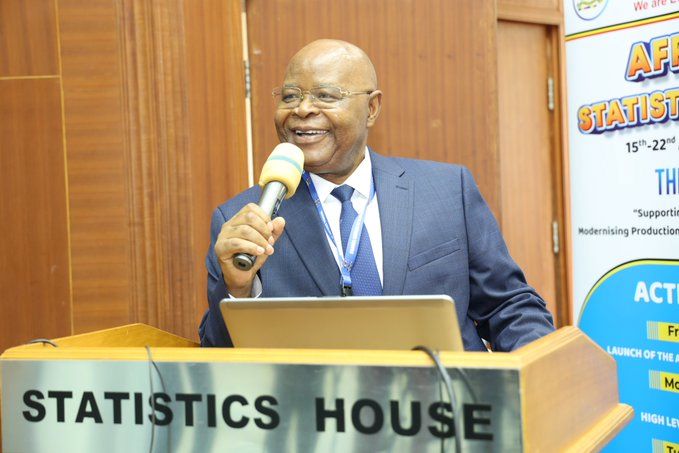UBOS celebrates African statistics day with focus on enhancing education data
Dr. Mukiza praised the ongoing cooperation between UBOS and the education sector, emphasizing that it plays a crucial role in enhancing the quality of education data collected. "Uganda still ranks high as the best statistical agency, and many countries are benchmarking with UBOS based on our successes," he shared, reaffirming the Bureau's commitment to ensuring the provision, access, and effective use of data.

The Uganda Bureau of Statistics (UBOS) joined education stakeholders for a high-level engagement to commemorate African Statistics Day, marked annually on November 18th.
This year’s event highlighted the critical role of reliable education statistics in shaping Uganda’s development agenda.
While African Statistics Day is officially celebrated on November 18th, Uganda extends the recognition throughout the week, underscoring the significance of statistics in driving evidence-based policy decisions.
“Africa celebrates one day, but Uganda chose to celebrate a week given the importance of statistics,” remarked Dr. Chris N. Mukiza, the UBOS Executive Director. He emphasized the importance of partnerships within the education sector, noting how these collaborations enrich the data UBOS collects, ultimately informing better decision-making.
Dr. Mukiza praised the ongoing cooperation between UBOS and the education sector, emphasizing that it plays a crucial role in enhancing the quality of education data collected. “Uganda still ranks high as the best statistical agency, and many countries are benchmarking with UBOS based on our successes,” he shared, reaffirming the Bureau’s commitment to ensuring the provision, access, and effective use of data.
In his opening remarks, Dr. Albert Byamugisha, UBOS Board Chairperson, expressed gratitude to education stakeholders for their continuous collaboration. “Let us all be ambassadors of data use in our respective institutions since statistics remain the backbone of evidence-based decision-making,” he urged. He also acknowledged the support from Hon. Amos Lugoloobi, whose guidance and financial allocations have been instrumental in executing UBOS’s activities.
The discussions during the event centered on the importance of robust education statistics in guiding Uganda’s national development strategies. Dr. Mukiza highlighted that comprehensive data collection, whether through censuses, surveys, or administrative systems like the Education Management Information System (EMIS), provides a clear picture of the education landscape. This enables targeted interventions to address issues like low literacy rates, school dropouts, and resource allocation.
Dr. Byamugisha also expressed appreciation for the timely release of critical data by UBOS, which supports stakeholders in making informed decisions. He announced that UBOS is on track to release the final results of the 2024 Census in December, as planned in their roadmap. “I thank the UBOS Executive Director, Dr. Chris Mukiza, for ensuring timely data release. We are prepared to share the final Census 2024 results soon,” he added.
UBOS’s commitment to improving education statistics aligns with national and international objectives like Uganda’s National Development Plan (NDP3) and Sustainable Development Goal 4 (SDG 4), which aim to ensure inclusive, equitable quality education for all. Reliable data is crucial for evidence-based planning, from allocating resources for Universal Primary Education (UPE) grants to deploying teachers effectively.
The event also highlighted the challenges faced in data collection, including inadequate resources and varying data quality due to poor record-keeping. However, UBOS remains proactive, employing innovative techniques like AI-driven school mapping and satellite imagery to enhance data collection.
As Uganda gears up for the release of its final Census 2024 results, the commitment shown by UBOS and its stakeholders signals a brighter future for the education sector. By prioritizing data quality and embracing partnerships, Uganda is setting a strong precedent in the region, showcasing the power of statistics in driving sustainable development.



